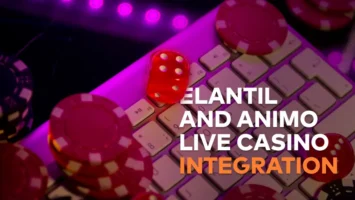Online lottery software – powering the future of lottery operations

The global lottery market is undergoing a profound shift. From a valuation of US$10.3 billion in 2022 to a projected US$17 billion in 2023, the online lottery sector is expanding at breakneck speed. This digital surge is driven by rising player demand for convenience, mobile access and engaging experiences, but it also introduces new operational and regulatory challenges for lottery operators, regulators and technology partners alike. In this environment, lottery organizations must adopt secure, scalable and compliant lottery software to stay competitive.
Market trends shaping online lottery growth
Mobile penetration is a leading catalyst. In Europe and North America, smartphones account for over half of lottery ticket sales online, while AsiaPacific markets, with mobile adoption rates above 80 percent, are primed for explosive growth. The shift to mobilefirst interfaces and dedicated apps lets players buy tickets, track draws and claim prizes anywhere, anytime.
Beyond mobile, operators are embracing digital transformation by expanding offerings beyond traditional draw games. Online scratchcards, instant lotteries and egames are now integral to modern platforms. In mature markets such as the UK and the Nordic region, integrated ecosystems that combine lottery, casino and sports betting are standard practice, creating crosssell opportunities and higher player retention.
At the same time, regulatory complexity remains a hurdle. Each jurisdiction enforces unique rules for example U.S. states vary on iLottery legality, EU lotteries must navigate crossborder restrictions, Asia’s mix of state monopolies and emerging private operators demands flexible compliance solutions. Effective platforms embed geolocation checks, age/KYC verification and AML monitoring to meet local requirements seamlessly
Technical foundations of online lottery systems
- front-end responsiveness – responsive web design and dedicated native apps (iOS/Android) provide players with seamless interfaces. Key elements include real-time notifications, ticket scanning via camera integration, and dynamic result displays,
- payment and wallet integration – seamless support for credit and debit cards, e-wallets, local banking methods, and emerging solutions such as cryptocurrencies is essential. A unified wallet system allows instant top-ups, withdrawals, and promotional credits, while transaction monitoring engines guard against fraud,
- game and draw management – operators need tools to configure game types such as daily or weekly draws, instant scratch-cards, and number-prediction games, using both templates and custom rule sets. Automation handles draw execution, jackpot rollover logic, and winner selection, with administrative override options to handle exceptions,
- security and auditability – end-to-end SSL/TLS encryption protects all data flows. Certified random-number generators (compliant with GLI-19 and ISO standards) ensure fairness. Comprehensive logging captures every player action, financial transaction, and draw event.
The development of social features in online lottery games
There is a clear trend of integrating social features into online lottery platforms. Operators are increasingly allowing players to create joint lottery pools and share winnings, which enhances the fun and interaction element. Social features, such as the ability to invite friends to play, share results, or participate in rankings, contribute to increased player engagement and loyalty. The social aspect can significantly enhance the appeal of online lotteries, transforming them into more interactive and engaging group experiences. People naturally enjoy sharing their emotions and experiences with others, and the integration of social features in online lotteries perfectly meets this need, fostering a sense of community and providing additional motivation to play.
Blockchain technology for security and transparency
Blockchain technology has proven its effectiveness as a solution for online transaction security and is increasingly being applied in the lottery industry. Thanks to its decentralized and immutable data structure, blockchain can significantly enhance the transparency of draws and prize payouts, eliminating players’ concerns about potential manipulation. Blockchain-based smart contracts can automatically and immutably enforce the rules of the lottery and payouts, further increasing player trust. Examples of blockchain platforms in the lottery industry include Firelotto, Kibo, and Quanta. Blockchain is a groundbreaking technology for the lottery industry, with the potential to significantly boost player trust by providing undeniable transparency and security for all operations.
The use of Big Data for analytics and personalization
The vast amounts of data generated by online lottery platforms represent a valuable source of information for operators. Big Data technologies enable operators to access extensive market insights, including comparing lottery sales worldwide and analyzing the reasons behind the poor performance of certain brands. Through precise data analysis, operators can develop more effective marketing strategies and promotional campaigns, increasing player engagement. Furthermore, Big Data combined with artificial intelligence allows for even deeper personalization of offers and recommendations for players, tailoring games and promotions to their individual preferences and activity history on the platform. The use of Big Data is thus key to making informed business decisions, optimizing operations, and delivering more personalized experiences for players, ultimately leading to increased satisfaction and loyalty.



















